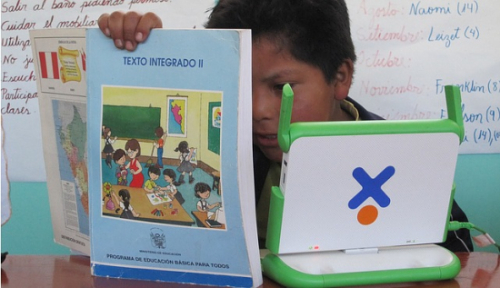 Mozilla published a book last month that offers a glimpse at how open-source technology is shaping the field of education. The book entitled Learning, Freedom and the Web written by Anya Kamenetz and some of the 400 participants of the first Mozilla Festival held in Barcelona in 2010, explores possible answers to the questions: How can the ideas of the open source movement help foster learning? What are the most effective ways to bring learning to everyone? How does openness help the spread of knowledge?
Mozilla published a book last month that offers a glimpse at how open-source technology is shaping the field of education. The book entitled Learning, Freedom and the Web written by Anya Kamenetz and some of the 400 participants of the first Mozilla Festival held in Barcelona in 2010, explores possible answers to the questions: How can the ideas of the open source movement help foster learning? What are the most effective ways to bring learning to everyone? How does openness help the spread of knowledge?
The book contains session notes from the festival, quotes and blogs from leading experts, key-findings from current projects, as well as several how-tos including how to create your own ebook. The format of the book itself follows the ethos of the minds which collaborated to create it so that printed copies are available for purchase but it can also be downloaded as a PDF for free or accessed in an easy-to-use web version that includes video clips.
Exploring ideas such as the concept of industrialized education, the future of the physical library, and the quality and sustainability of open content, contributors include promising new ideas and tools that can be used to develop and share educational resources. For people who are unfamiliar with these concepts or are interested in developing their own open educational resources (OER), the book’s easy-to-follow instructions and format make it a great introduction to open-source technologies and their applications.
Helpful how-tos include difficulty level, amount of time to develop, who they involve and benefit, as well as steps. Topics include:
- Creating an open education resource
- Contract grading
- Adopting an open textbook
- Creating your own how-to
- Creating your own ebook
- Creating your own festival
- Teaching and learning with Wikipedia
 Learning, Freedom and the Web, both the book and the festival, might well serve as a barometer for the level of involvement and development of this new open source movement. When faced with the question of the movement’s future, authors leave the reader with a need to contribute and collaborate. “What really keeps a community going? Shared work, shared goals, shared fun, shared vocabulary, and shared rituals. There doesn’t have to be one ultimate unified vision. The idea of what learning will mostly look like in ten years, 50 years, or 100 years remains fuzzy, and that’s by design, because one definition of an improved future is one that has a greater diversity of choices than in the past.”
Learning, Freedom and the Web, both the book and the festival, might well serve as a barometer for the level of involvement and development of this new open source movement. When faced with the question of the movement’s future, authors leave the reader with a need to contribute and collaborate. “What really keeps a community going? Shared work, shared goals, shared fun, shared vocabulary, and shared rituals. There doesn’t have to be one ultimate unified vision. The idea of what learning will mostly look like in ten years, 50 years, or 100 years remains fuzzy, and that’s by design, because one definition of an improved future is one that has a greater diversity of choices than in the past.”













































